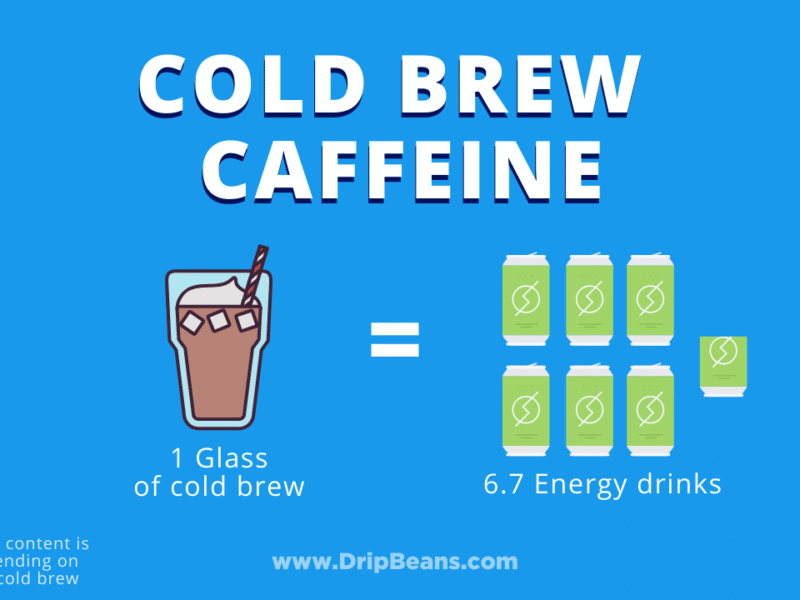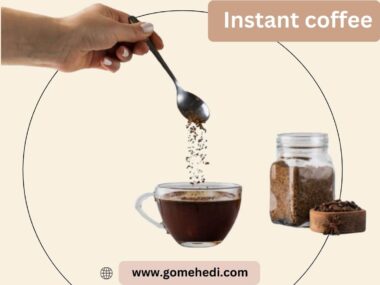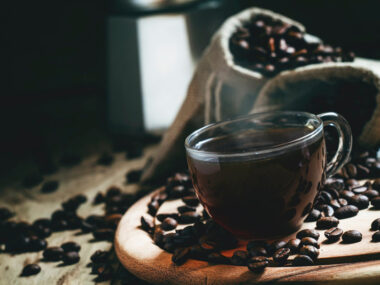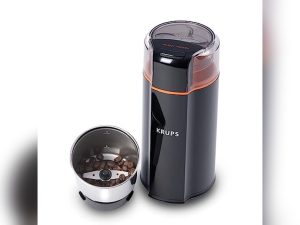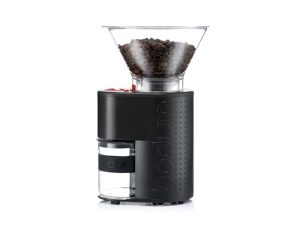Imagine waking up to the smooth, refreshing taste of cold brew coffee. It’s become your go-to morning drink, perfect for kick-starting your day with energy and focus.
But have you ever paused to wonder how much caffeine is actually in your favorite cold brew? You’re not alone. Many coffee lovers are curious about the caffeine content in their chilled pick-me-up. Understanding the caffeine levels can help you manage your intake and enjoy your coffee without any surprises.
This article will delve into the world of cold brew coffee and uncover the truth about its caffeine content. Whether you’re a caffeine enthusiast or just trying to stay mindful of your daily consumption, knowing the facts can empower you to make better choices. Stay with us, and by the end, you’ll have all the insights you need to enjoy your cold brew with confidence and clarity.
Caffeine Content In Cold Brew
Cold brew coffee has taken the world by storm with its smooth taste and refreshing vibe. If you’re a coffee enthusiast, you might have wondered about the caffeine punch it delivers. Understanding the caffeine content in cold brew can help you savor your cup while staying mindful of your daily intake.
Brewing Process
The way cold brew is made plays a significant role in its caffeine content. Unlike traditional hot coffee, cold brew is steeped in cold water for an extended period, usually 12 to 24 hours. This slow brewing process extracts flavors and caffeine differently, often resulting in a higher caffeine concentration.
Caffeine Comparison
Does cold brew really pack more of a caffeine punch than your regular cup of joe? It often does, but it depends on the coffee-to-water ratio used. Some cold brews can contain over 200 mg of caffeine per serving, compared to the average 95 mg in a standard cup of hot coffee. Next time you grab a cold brew, consider how it stacks up against your usual caffeine fix.
Serving Size Matters
Think about the size of your cup when assessing caffeine content. Cold brew is typically served in larger portions, which can add to the caffeine load. A small serving might be the same as a regular cup of coffee, but a large one could double or triple your caffeine intake.
Personal Tolerance
Everyone’s body reacts differently to caffeine. Some people can sip on cold brew all day without batting an eye, while others might feel jittery after just one cup. Be mindful of how you feel after drinking cold brew and adjust your consumption accordingly. How does your body handle caffeine?
Caffeine Content Chart
| Type | Caffeine Content (mg) |
|---|---|
| Cold Brew (12 oz) | 150-240 |
| Hot Coffee (12 oz) | 95 |
| Espresso (1 oz) | 63 |
Use this chart to gauge how much caffeine you’re consuming. Keep in mind, these numbers can vary based on the brand and brewing method.
Understanding the caffeine content in cold brew can help you make informed decisions about your coffee habits. Whether you’re seeking a strong caffeine boost or just love the taste, knowing the facts lets you enjoy your brew responsibly. Next time you sip that cold brew, think about how it aligns with your caffeine needs.

Credit: dripbeans.com
Cold Brew Vs. Other Coffee Types
Cold brew coffee typically contains more caffeine than other coffee types due to its brewing process. Steeping coffee grounds in cold water for an extended time results in a strong, smooth beverage. This method extracts more caffeine, offering a bolder taste and higher energy boost.
Cold brew coffee has taken the coffee world by storm. Its unique brewing process results in a smooth, rich flavor that many coffee lovers adore. But how does its caffeine content stack up against other coffee types? Let’s dive in and find out.
Cold Brew: A Caffeine Powerhouse?
Cold brew is known for its strong yet smooth taste. This is due to its brewing method, which involves steeping coffee grounds in cold water for an extended period, usually 12 to 24 hours. This process can result in a higher caffeine concentration compared to regular drip coffee. Imagine sipping a cold brew on a hot summer day, feeling the caffeine kick in with each refreshing gulp. But is it more potent than your morning espresso shot?
Espresso: Small But Mighty
Espresso, while served in small shots, is incredibly concentrated. An ounce of espresso often contains more caffeine than an ounce of cold brew. However, because cold brew is typically consumed in larger quantities, you might end up with more caffeine overall. Ever notice how a single espresso shot can jolt you awake? That’s its high caffeine concentration at work.
Drip Coffee: The Everyday Staple
Drip coffee is a daily go-to for many. It’s brewed quickly with hot water passing through coffee grounds. Typically, it has less caffeine than cold brew when you compare the same volume. Picture your morning routine with a warm cup of drip coffee. It’s comforting but might not pack the same caffeine punch as cold brew.
Instant Coffee: Convenience Vs. Caffeine
Instant coffee is all about convenience. Just add water and you’re ready to go. However, it’s often lower in caffeine compared to cold brew and drip coffee. Have you ever relied on instant coffee during a busy morning? While it’s quick, it might not satisfy the caffeine cravings like cold brew does.
Which Coffee Type Suits You Best?
Choosing the right coffee type depends on your lifestyle and caffeine needs. If you want a smooth, rich coffee with a caffeine boost, cold brew might be your best bet. For a quick, intense hit, espresso is a great choice. Think about your daily routine and caffeine tolerance. Are you looking for a refreshing, smooth coffee experience? Or do you need a fast, concentrated caffeine fix? Understanding the caffeine content in different coffee types can help you make informed choices. So, which coffee will you reach for next time?
Factors Affecting Caffeine Levels
Cold brew coffee is a favorite among caffeine lovers, but have you ever wondered why its caffeine levels vary? Understanding the factors that affect caffeine content can help you customize your perfect brew. Let’s dive into how brewing time, coffee-to-water ratio, and type of coffee beans play a role in determining the caffeine content of your cold brew.
Brewing Time
Have you ever left your cold brew to steep overnight? The longer you brew, the more caffeine is extracted from the coffee grounds. A short brewing time might leave you with a weaker brew, while an extended time can pack a punch. If you’re looking for that extra jolt, try increasing your brewing time. But remember, too long can sometimes lead to an overly bitter taste.
Coffee-to-water Ratio
Do you like your coffee strong or mild? The coffee-to-water ratio is crucial in determining caffeine levels. A higher coffee-to-water ratio typically results in a more concentrated brew. If you’re using more coffee grounds and less water, you’re likely to end up with a cold brew that keeps you alert for hours. Experiment with ratios to find what suits your taste and energy needs.
Type Of Coffee Beans
Have you ever considered the type of beans you’re using? Different coffee beans have varying caffeine content. Arabica beans generally have less caffeine compared to Robusta beans. If you’re looking for a strong caffeine hit, you might want to opt for Robusta beans. Your choice of beans can drastically change your cold brew experience, so choose wisely based on your caffeine preference.
So, next time you make cold brew, think about these factors. How might adjusting each one change your coffee experience? The power to customize your caffeine intake is in your hands. How will you craft your perfect cold brew?

Credit: savorista.com
Health Implications Of Cold Brew
Cold brew coffee has gained popularity for its smooth taste. It is less acidic than regular coffee. Its caffeine content can impact health in different ways. Understanding these effects can help you enjoy it responsibly.
Benefits Of Moderate Consumption
Drinking cold brew in moderation can offer benefits. It can boost energy and improve focus. The antioxidants in coffee may support heart health. Cold brew also has less acid, which is gentler on the stomach. Enjoying a cup can enhance mood and promote alertness.
Potential Risks Of High Intake
Excessive cold brew consumption may lead to health issues. Too much caffeine can cause insomnia and restlessness. It may increase heart rate and lead to anxiety. High intake could also affect blood pressure negatively. Balance is key to avoiding these risks. Monitor your intake for a healthy lifestyle.
Cold Brew Myths And Facts
Cold brew coffee often surprises with its caffeine content. Many believe it’s weaker, but it can be stronger than regular coffee. Factors like brewing time and coffee-to-water ratio determine its caffeine levels.
Cold brew coffee has gained popularity for its smooth taste and refreshing nature. But with its rise, several myths about its caffeine content have emerged. Understanding these myths and facts can help you make informed choices about your caffeine intake and truly enjoy your coffee experience.
Myth: Cold Brew Has Less Caffeine Than Hot Coffee
Many people believe that because cold brew is less bitter, it must have less caffeine. This isn’t necessarily true. Cold brew is often brewed with more coffee beans than hot coffee, potentially making it stronger in caffeine.
Fact: Brewing Time Affects Caffeine Levels
Cold brew is steeped for a long time, often 12 to 24 hours. This prolonged brewing can extract more caffeine from the beans. If you’re watching your caffeine, consider the steeping time of your cold brew.
Myth: Cold Brew Is Just Iced Coffee
Some think cold brew is simply coffee poured over ice. But cold brew is brewed cold, not just served cold. This process results in a different flavor profile and caffeine content compared to traditional iced coffee.
Fact: Cold Brew Is Less Acidic
Cold brew’s low acidity makes it gentler on your stomach. If you’ve ever felt uneasy after a hot cup of coffee, cold brew might be a soothing alternative. The reduced acidity doesn’t mean it’s caffeine-free, though.
Myth: Cold Brew Is Expensive To Make
Sure, buying cold brew at a café can be pricey. Yet making it at home is simple and cost-effective. All you need is coarsely ground coffee, water, and time—giving you a refreshing drink without the high cost.
Fact: Different Beans Yield Different Results
The type of coffee bean affects cold brew’s flavor and caffeine content. Experiment with different beans to find your perfect match. A personal favorite might surprise you with its unique taste and energy boost.
Myth: All Cold Brews Are The Same
Cold brews vary greatly depending on beans, water ratio, and steeping time. Your friend’s favorite might not suit your taste buds or caffeine needs. Explore different recipes to discover what works best for you. Understanding these myths and facts can transform your cold brew experience. Next time you sip, consider how these truths impact your drink. What myths about cold brew have you heard before?
Tips For Controlling Caffeine Intake
Cold brew coffee is known for its smooth taste and high caffeine content. Some people might find its caffeine levels overwhelming. Learning how to control caffeine intake can help enjoy cold brew without the jitters. Here are some practical tips to manage the caffeine levels in your cold brew.
Adjusting Brew Time
Brew time affects caffeine levels. Longer brewing extracts more caffeine. To reduce caffeine, shorten the brewing time. Experiment with different durations. Find the balance that suits your taste and caffeine needs.
Choosing The Right Beans
Bean selection matters. Light roast beans usually have more caffeine. Dark roast beans often contain less. Opt for dark roast if you want less caffeine. Consider experimenting with different bean types. Each type offers a unique flavor profile.
Dilution Techniques
Diluting cold brew is effective. Add water or milk to your coffee. This reduces caffeine concentration. Adjust the ratio to your preference. Try using ice cubes made from coffee. They keep the drink cold without watering it down.
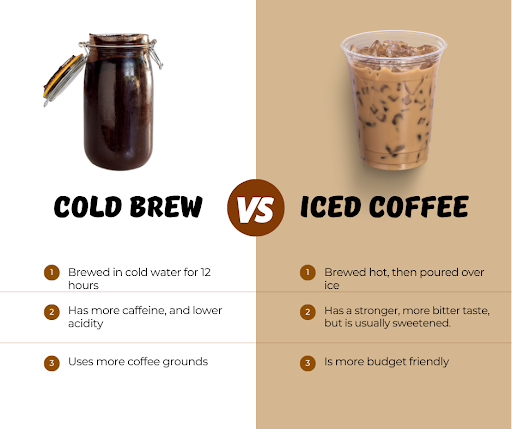
Credit: mortadellahead.com
Frequently Asked Questions
How Much Caffeine Is In Cold Brew?
Cold brew coffee typically contains more caffeine than regular coffee. On average, an 8-ounce serving has about 100-200 mg of caffeine. The caffeine content can vary based on the brewing process and coffee grounds used. Cold brew is less acidic, making it smoother and easier to drink.
Is Cold Brew Stronger Than Regular Coffee?
Yes, cold brew is generally stronger than regular coffee. Its brewing method extracts more caffeine and flavor. Steeping coffee grounds in cold water for extended periods enhances its potency. However, it is often diluted with water or milk before serving, balancing its strength.
Does Cold Brew Affect Caffeine Absorption?
Cold brew’s lower acidity may affect caffeine absorption differently. Its smoother taste can lead to consuming larger amounts. Caffeine absorption varies based on individual metabolism. Cold brew’s slower brewing process might result in a gentler caffeine release, compared to hot brewed coffee.
How Long Does Caffeine Last In Cold Brew?
Caffeine effects from cold brew typically last 4-6 hours. The duration can vary by individual tolerance and metabolism. Unlike hot coffee, cold brew might provide a sustained energy boost. Its smoother taste may lead to consuming more, potentially affecting caffeine duration.
Conclusion
Cold brew coffee offers a unique caffeine experience. It varies from regular coffee. Cold brew is often smoother, less acidic. But caffeine content can be higher. It depends on brew time and coffee-to-water ratio. More caffeine means more energy. But moderation is key.
Listen to your body. Choose wisely based on your needs. You now know what affects caffeine levels. Enjoy your cold brew wisely. Explore different blends. Experiment with brewing methods. Discover your perfect balance. Cold brew can be your refreshing pick-me-up.
Stay energized and enjoy the journey!

